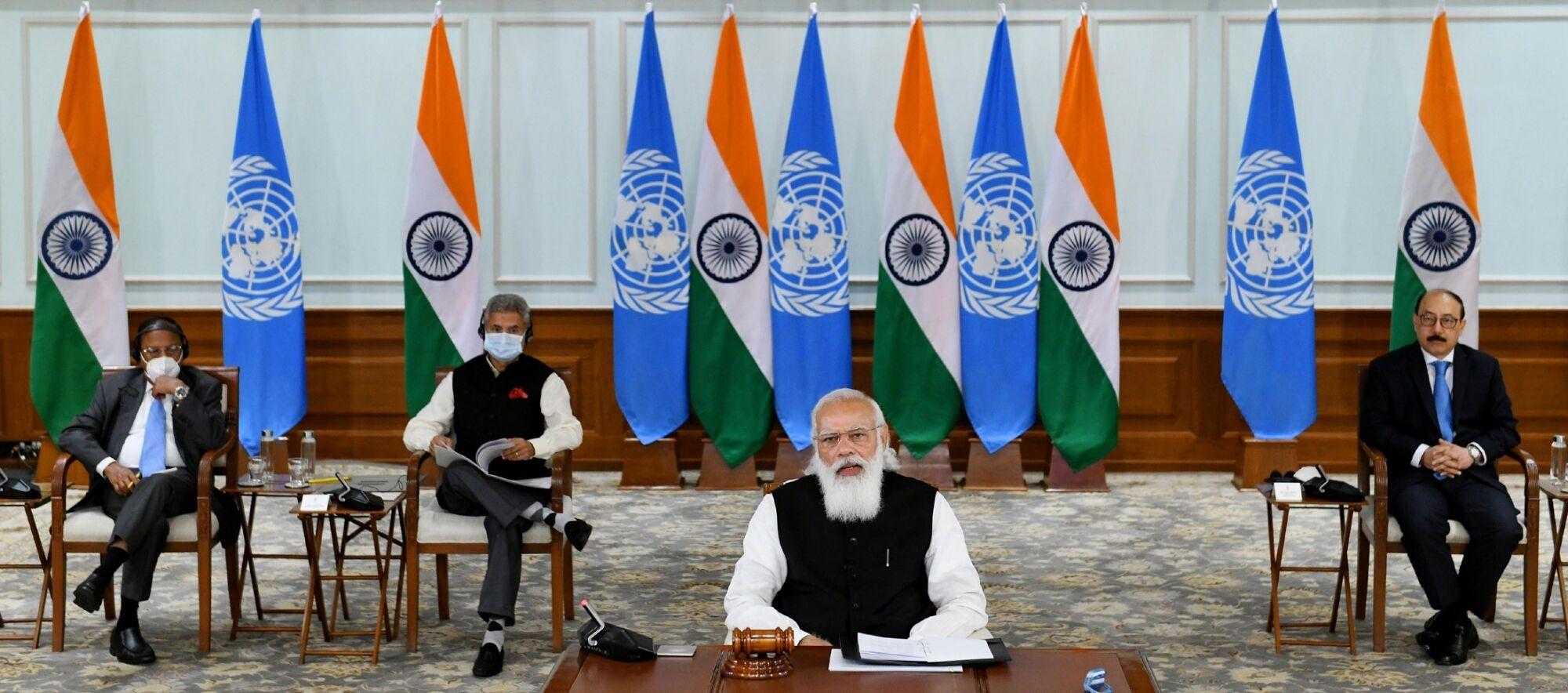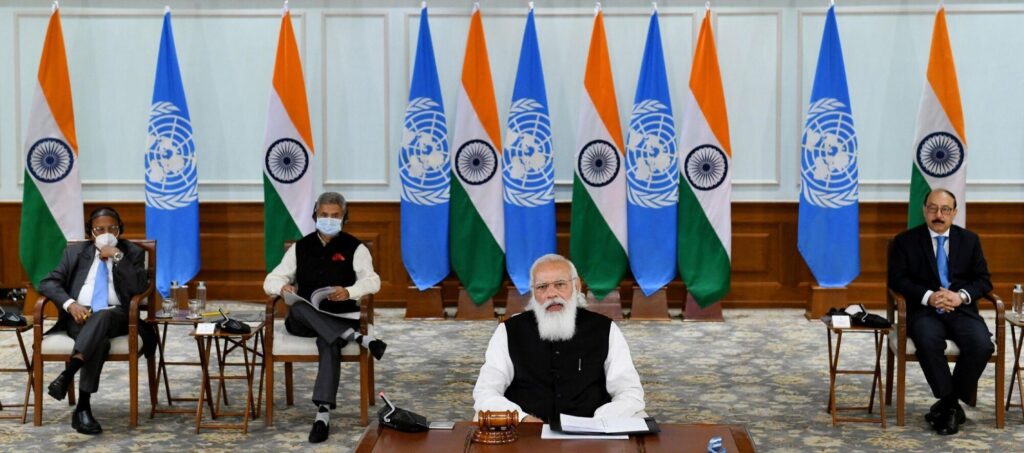UNITED NATIONS — India’s Prime Minister Narendra Modi Aug. 9 proposed five basic principles for a holistic approach to maritime security that holds the “key to the planet’s future” and the UN Security Council, in a show of support, adopted India’s presidential statement reflecting them.

The proposals made by Modi while presiding over a high-level meeting of the Security Council on maritime security – the first such major initiative at the UN – touched the veins of deep international concerns with heads of state and government and ministers from around the world participating.
Outlining the challenges faced by the world, he said the “common maritime heritage of ours faces various types of threats. Maritime routes are being misused for piracy and terrorism. There are maritime disputes between several countries. Climate change and natural disasters are also challenges to the maritime domain.”
“In this context we need a framework for mutual cooperation in order to conserve and utilize our shared maritime heritage,” he said.
This was the first time that an Indian prime minister wielded the gavel at the Security Council, highlighting the importance New Delhi gives to maritime security, given its 7,000-km seacoast and its pivotal position on the key trade routes emanating from East and Southeast Asia.
The meeting was held virtually because of the Covid-19 pandemic travel issues, but it also enabled the participation of world leaders.
Permanent member Russia’s President Vadimir Putin made a rare appearance at the meeting in which Kenya’s President Uhuru Muigai Kenyatta and Vietnam’s Prime Minister Pham Vinh Chin also participated. Secretary-General Antonio Guterres was represented by his Chef de Cabinet Maria Luiza Ribeiro Viotti.
U.S. Secretary of State Antony Blinken, French Foreign Minister Jean-Yves Le Drian and Britain’s Secretary of State for Defense Ben Wallace were among the ministerial participants.
The Council unanimously adopted the presidential statement by India that warned against the threats posed by terrorism and called for international action to protect the world against the danger.
The statement said: “The Security Council acknowledges that terrorists may target vulnerable targets, including critical infrastructure and public places, and specifically the transportation sector, including seaports and maritime transport, as well as interconnected critical infrastructure which underlines the importance of enhanced cooperation to protect critical infrastructure, including cross-border infrastructure and calls upon Member States to implement relevant UN Security Council resolutions.”
The statement asked all countries “to continue building and strengthening their capacities to enhance maritime safety and security, including against piracy and armed robbery at sea and terrorist activities, as well as against all forms of transnational organized crimes and other illicit activities in the maritime domain through the competent organizations and instruments.”
In his speech outlining the five principles, Modi called for joint international action against “non-state actors” – a UN term for terrorists.
Modi started the meeting with a moment of silence for the victims of the Covid-19 pandemic and ended it with the invocation of “Om Shanti.”
In his five principles, Modi went beyond the conventional concepts of maritime safety that focus on imminent threats like piracy and government actions to include protecting the maritime environment and its resources and promoting trade over the oceans.
He said that maritime security cooperation should include protecting the marine environment and resources as well as cooperation in dealing with natural disasters.
Martime disputes should be resolved peacefully and in accordance with international law, he said.
Other basic principles, he said, were removing barriers to international trade and promoting maritime connectivity.
Putin, who welcomed India convening the high-level meeting, suggested unified action under the UN against piracy and terrorism with special services and armed contingents to fight the menace, adding that Russia was prepared to share its experience of anti-terrorist operations.
The UK’s Wallace said that his country shared India’s “vision for a free, open and secure Indo-Pacific,” which, he said, was “the world’s growth engine.”

